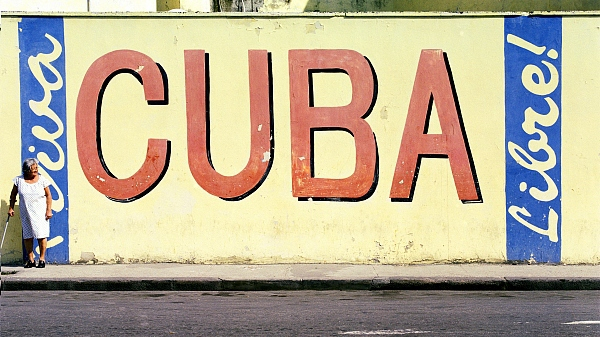
Films
09:06, 06-Dec-2018
Cuban film fest celebrates 40 years of Latin American moviemaking
Updated
08:46, 09-Dec-2018
CGTN

Cuba's Festival of New Latin American Cinema will mark 40 years of promoting regional filmmakers when it opens Thursday in Havana.
First held in 1979 to reward the best of Latin American moviemaking, the festival was the brainchild of Cuban revolutionary leader Fidel Castro, a great promoter of the arts, and Colombian writer and Nobel laureate Gabriel Garcia Marquez.
In the past four decades, the festival has done more than simply hand out prizes. It has become a launching pad for Latin American filmmakers who are invariably overlooked by Hollywood.
In founding the festival, its backers said they aimed "to promote the regular gathering of Latin American filmmakers enriching the artistic culture of our countries with their work" and "contribute to the spread and international circulation" of accomplished regional films.
Ivan Giroud, who has directed the festival since 2013 and is considered a leading expert in Latin American cinema, says organizers strive to recognize both the veterans and the newcomers.
"It has always been open to the new generations, not just the patriarchs of Latin American cinema. It has made a great effort to discover and include new filmmakers," Giroud told reporters at a recent press conference.
"It is not a festival steeped in nostalgia. It is a festival that is alive, that is searching for [new talent] all the time," he added.
The first edition of the festival presented its top prize, the Grand Coral Prix, to the Brazilian film "Coronel Delmiro Gouveia" directed by Geraldo Sarno, and Cuba's "Maluala" directed by Sergio Giral.
Since then, many distinguished filmmakers have received the award, including Argentineans Adolfo Aristarain and Eliseo Subiela; Mexicans Humberto Hermosillo and Arturo Ripstein; Brazilians Nelson Pereira Dos Santos and Suzana Amaral; and Cubans Tomas Gutierrez Alea and Fernando Perez.
Argentina has snatched up 11 awards, the most by any nation, followed by Mexico, with nine, Brazil, with eight, and Cuba, with seven. Chile has won three times, Uruguay twice, and Venezuela and Peru, once each.
This year's edition features no less than a thousand entries.
Cuba is represented by the feature films "The Translator," directed by brothers Rodrigo and Sebastian Barriuso; "The Extraordinary Journey of Celeste Garcia," by Arturo Infante, and "Mantis nest," by Arturo Sotto, as well as "Disobedient," by Fernando Perez, "Jazz Club," by Esteban Insausti, and "Innocence," by Alejandro Gil.
There will be a roundtable of filmmakers to mark the 40th anniversary, while the festival as a whole is designed to honor the late director Tomas Gutierrez Alea, on the occasion of the 90th anniversary of his birth, with experts from several countries discussing the work of the Cuban director.
The event will also pay tribute to Argentinean filmmaker Fernando Birri, a founder of the International Film and Television School. The School of the Three Worlds, founded on December 15, 1986, is located in San Antonio de los Banos, a town south of Havana, and been a true hotbed of new Latin American cinema.
Source(s): Xinhua News Agency

SITEMAP
Copyright © 2018 CGTN. Beijing ICP prepared NO.16065310-3
Copyright © 2018 CGTN. Beijing ICP prepared NO.16065310-3